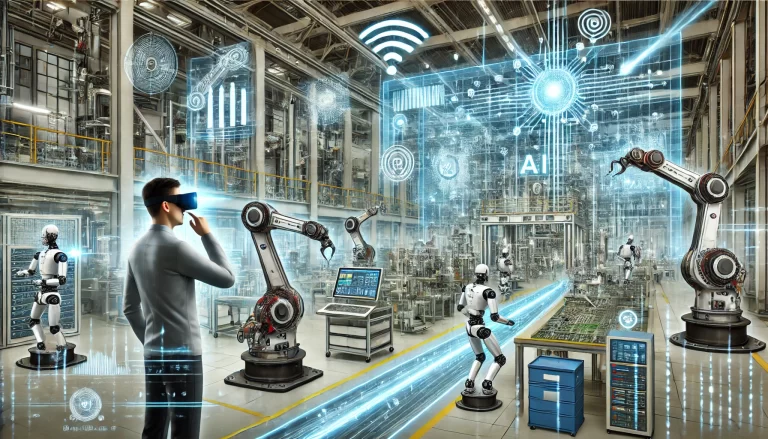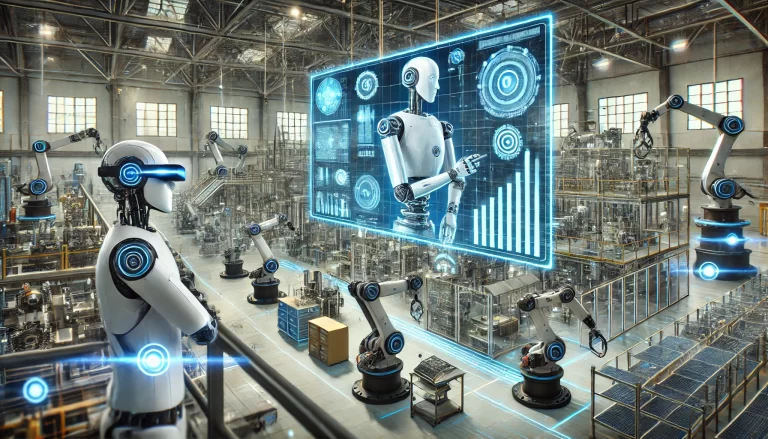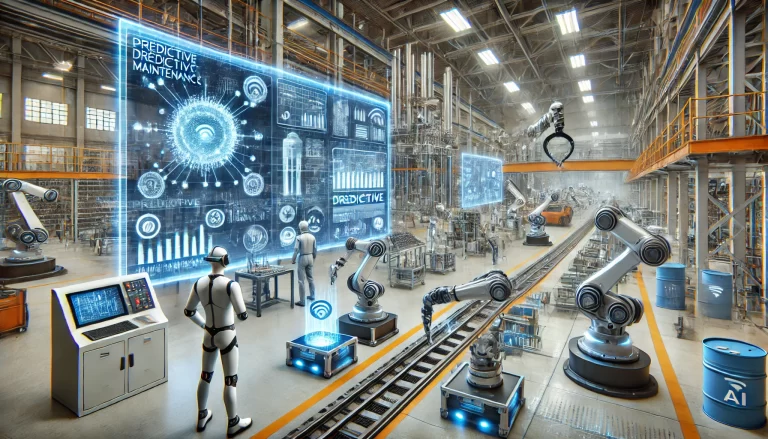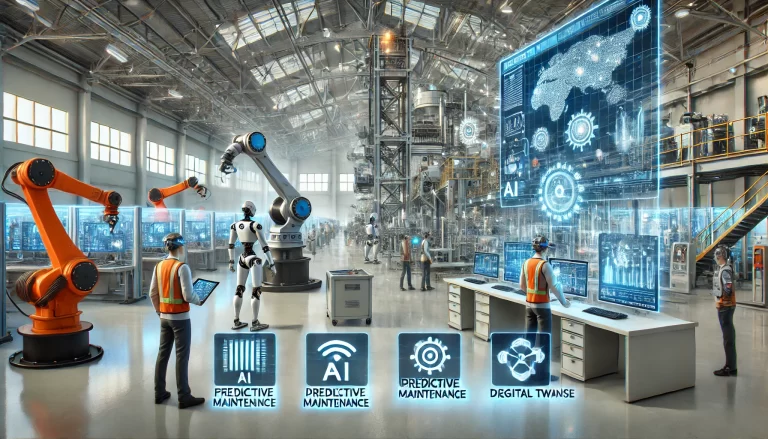In today’s fast-paced world, automation has become a cornerstone of modern industry, enabling greater productivity, safety, and innovation across diverse sectors. Automation involves the use of technology to perform tasks that were once carried out manually. This shift from manual labor to machine-driven processes has transformed industries, making operations faster, more efficient, and often more accurate. Here, we explore the importance of automation in detail and how it impacts our lives and work.
1. Boosting Efficiency
One of the most immediate benefits of automation is its capacity to increase efficiency. Automated systems can perform repetitive tasks at a much faster rate than humans, leading to shorter production cycles. In manufacturing, for instance, robots and conveyor systems work continuously, unlike human workers who require breaks and shifts. This constant operation allows for a streamlined production process and minimizes downtime, enabling businesses to scale up their operations and meet higher demand. In service industries, automation in scheduling, booking, and data entry speeds up the customer service process, reducing wait times and improving overall satisfaction.

2. Reducing Costs
Cost reduction is another significant advantage of automation. By reducing the need for human labor, companies can lower labor costs and redistribute their workforce toward higher-value tasks. Additionally, automation reduces the likelihood of material waste and improves resource utilization. Automated systems are generally more precise and accurate, which means less material is wasted due to human error. Over time, these savings accumulate, making automation a cost-effective choice for businesses. Although the initial investment in automation technology can be substantial, the long-term savings in labor and resources often justify the expenditure.
3. Enhancing Quality and Precision
Automation is vital in industries where consistency and precision are crucial, such as electronics manufacturing, automotive production, and pharmaceuticals. Automated systems perform tasks with a high degree of accuracy, reducing the risk of errors that can lead to defective products. Unlike humans, who may vary in performance due to fatigue or external factors, machines can maintain the same level of performance throughout. This consistency translates to a higher quality of goods produced, which is essential for customer satisfaction and maintaining brand reputation.
4. Improving Workplace Safety
In many industries, certain tasks carry inherent risks, such as exposure to hazardous chemicals, heavy machinery, or extreme temperatures. By automating these dangerous processes, companies can protect their workers and minimize the occurrence of accidents. For example, in chemical plants, automated machinery can handle dangerous substances, reducing the risk to human workers. In warehouses, automated robots can move heavy goods, reducing the physical strain on human employees and preventing injuries. Automation creates a safer workplace, which is essential for the well-being of employees and helps organizations avoid costly accidents and workers’ compensation claims.

5. Freeing Up Human Potential
Automation doesn’t just replace human labor; it transforms it. By automating repetitive and mundane tasks, companies free up their workforce to focus on more complex, creative, and strategic activities. Rather than spending time on data entry, assembly line work, or basic customer service, employees can engage in roles that require problem-solving, critical thinking, and interpersonal skills. This shift can lead to more fulfilling work, enhancing employee satisfaction and productivity. It also pushes society forward, as people spend less time on routine work and more on innovation, creativity, and areas where human insight is invaluable.
6. Facilitating Data Collection and Analysis
Automation enables the collection of large volumes of data, which is critical for informed decision-making. Automated systems can gather data on everything from production efficiency and inventory levels to customer preferences and market trends. This data can then be analyzed to gain insights into performance, identify bottlenecks, and predict future demands. In manufacturing, for example, predictive maintenance uses data from sensors to anticipate equipment failures before they occur, minimizing downtime and maintenance costs. In customer service, automated systems can analyze interactions to better understand client needs and improve service quality.

7. Driving Technological Advancement
Automation has spurred advancements in fields like artificial intelligence (AI), robotics, and machine learning. These technologies continually evolve, creating a cycle of innovation where automation and technological development drive each other forward. The demand for automated solutions pushes engineers and researchers to develop more sophisticated robots, smarter AI systems, and advanced machine-learning algorithms. These technologies are then integrated into automated systems, enhancing their capabilities and paving the way for even more advanced applications. This cycle leads to an exponential growth in technology, opening up new possibilities and applications in fields as diverse as healthcare, finance, logistics, and education.
8. Supporting Sustainable Practices
Automation can play a crucial role in promoting sustainability. Automated systems often optimize energy use, reduce waste, and improve resource management. For instance, automated irrigation systems in agriculture can use sensors to monitor soil moisture, ensuring that crops are watered only when necessary, which conserves water. In manufacturing, automation can help reduce emissions by optimizing processes for energy efficiency. By streamlining operations, companies can lessen their environmental impact, meeting regulatory standards and contributing to global efforts to combat climate change.

Future of Automation
As we look to the future, automation will likely continue to expand into new areas, transforming sectors beyond manufacturing and technology. Fields such as healthcare, education, and customer service are already beginning to adopt automation to enhance service delivery, improve accessibility, and streamline workflows. Advances in AI, robotics, and the Internet of Things (IoT) will drive this transformation, making automated systems smarter, more adaptable, and more accessible.
In conclusion, automation is not merely a tool for cost reduction or efficiency—it is a transformative force reshaping how we live, work, and interact with the world. By reducing labor costs, enhancing safety, enabling innovation, and supporting sustainable practices, automation plays a crucial role in modern society. As technology continues to evolve, the potential applications and benefits of automation will only expand, driving us toward a future where machines and humans work in harmony to solve complex challenges and build a more efficient, safer, and innovative world.
